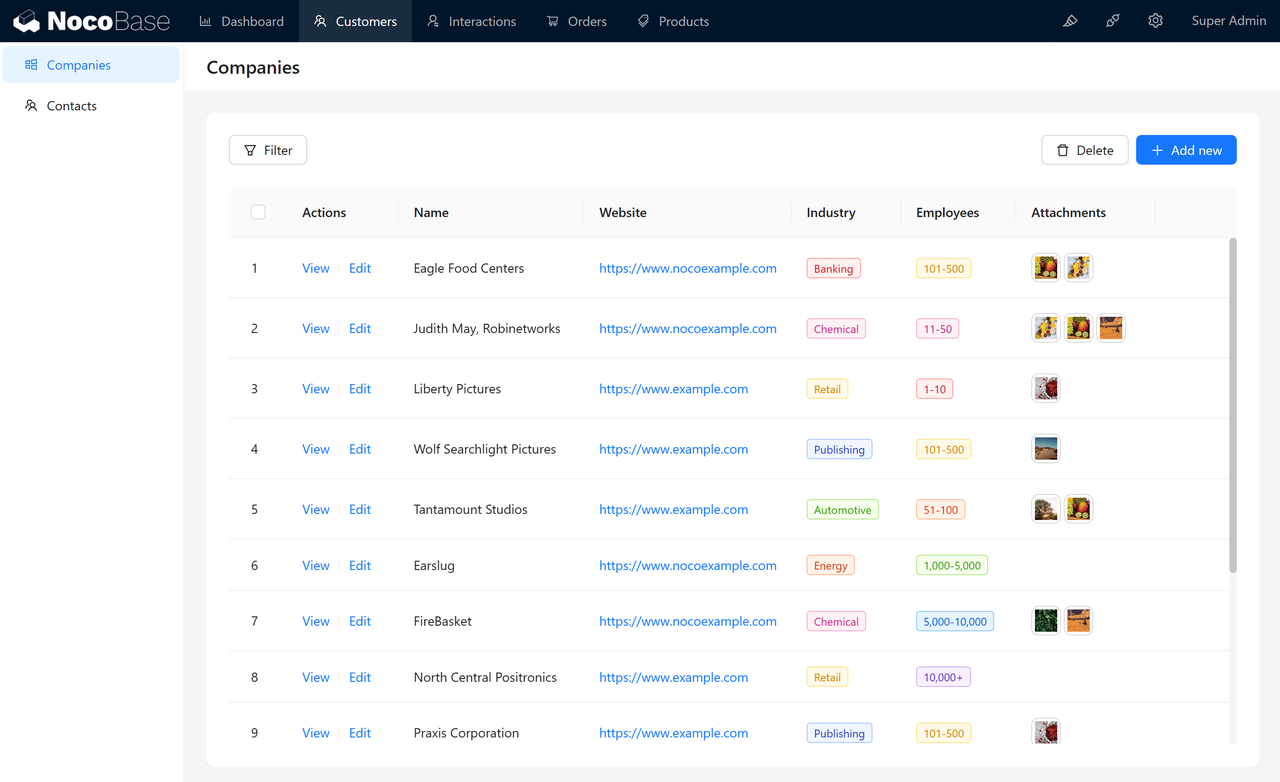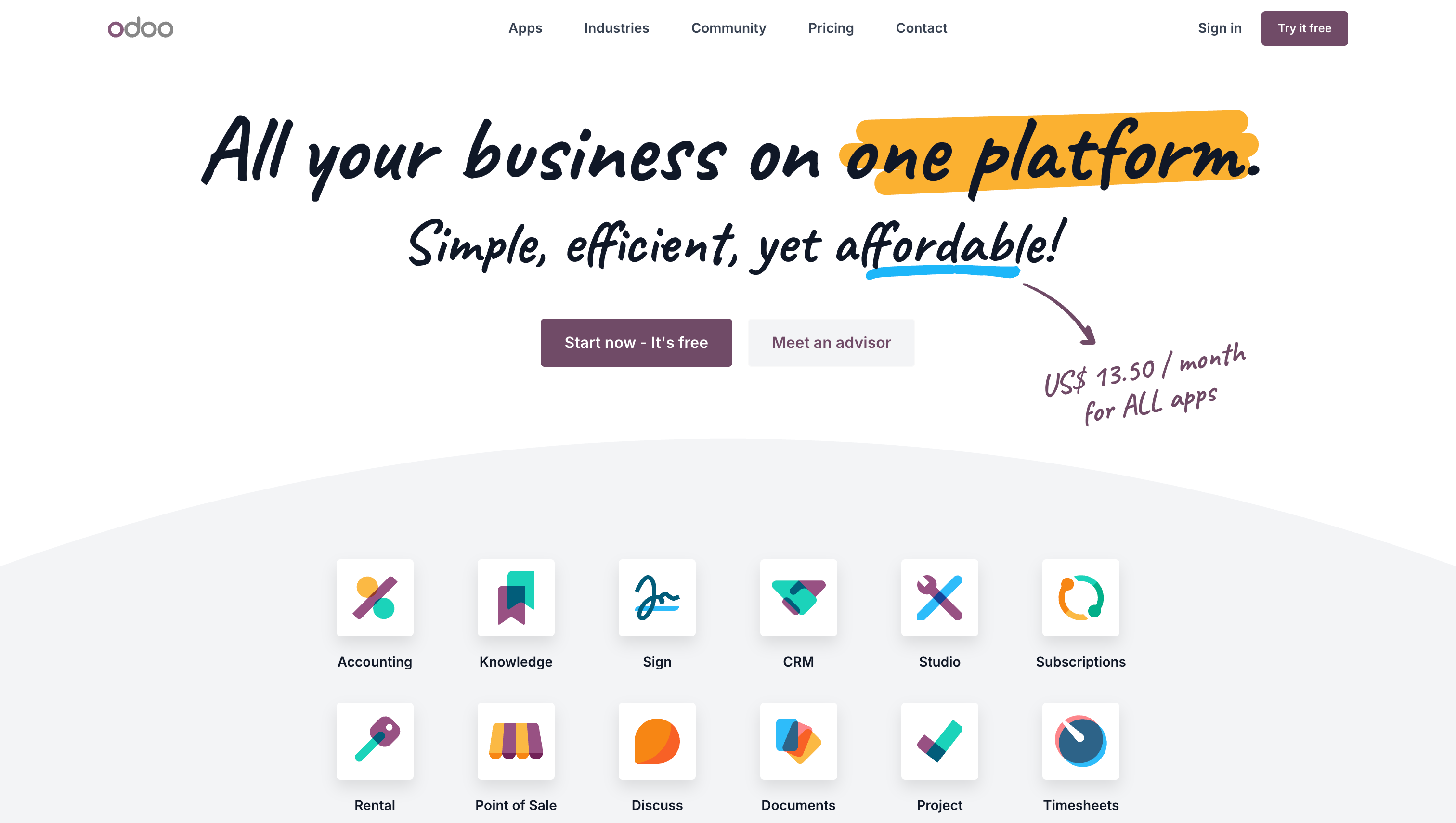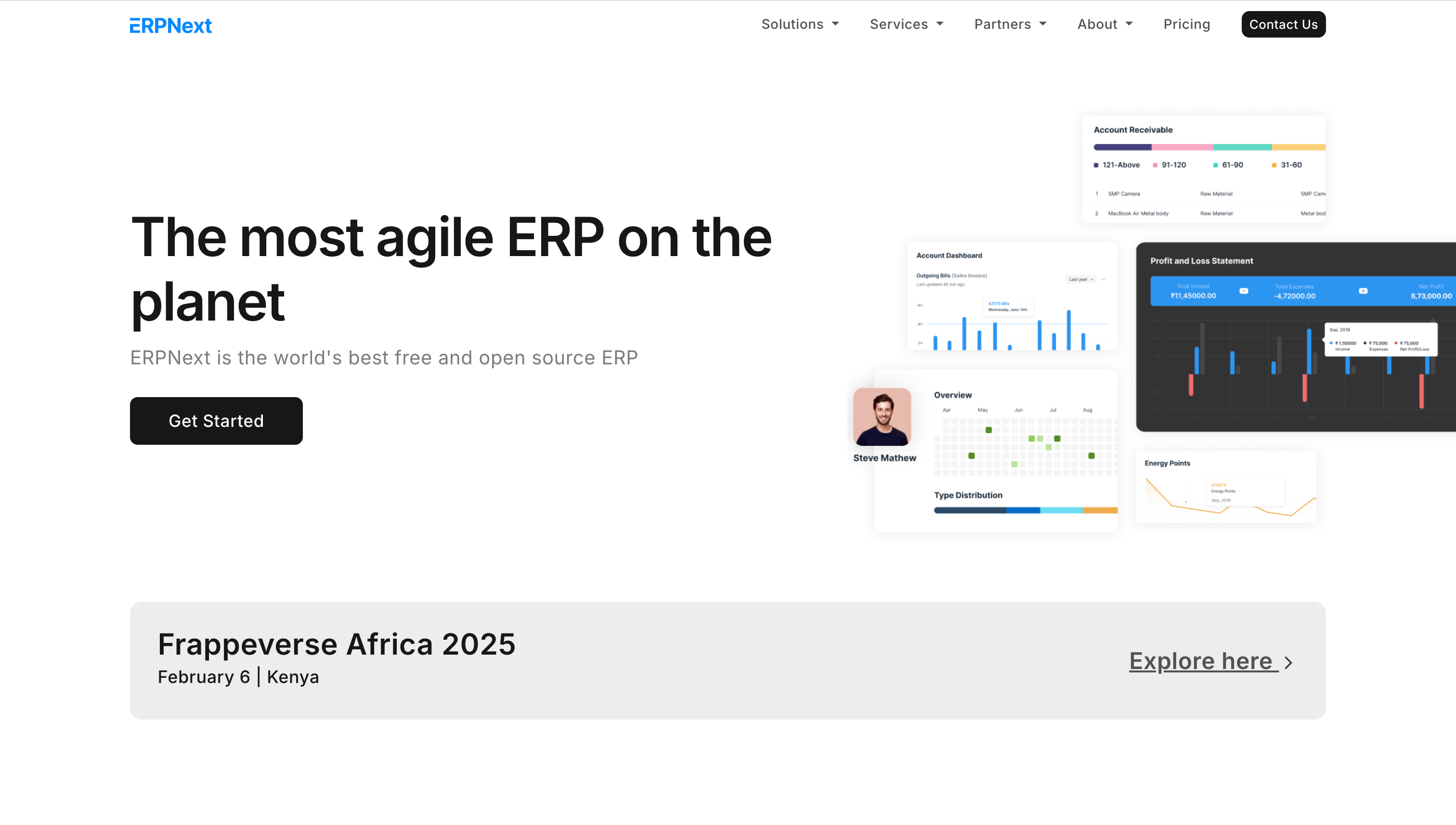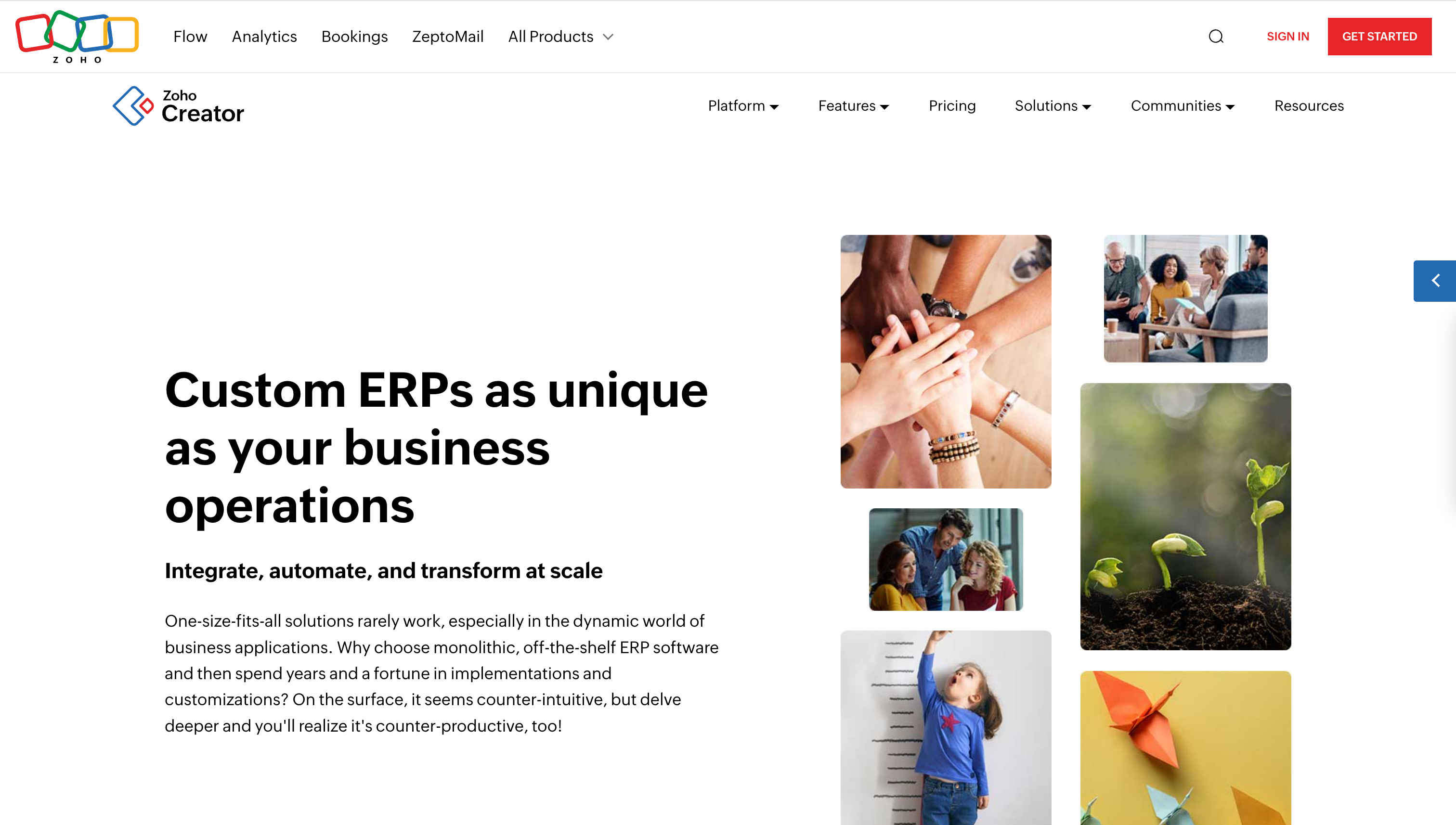This is the fourth article in our “Small Business” series! Here’s a quick look back at our previous topics:
- 5 Must-Have Management Tools for Small Businesses (Based on Real Experience)
- 4 Open-Source CRM Tools for Small Businesses: Lightweight, Efficient & Easy to Use
- Best Inventory Management Tools for Small Businesses (Free & Open Source)
Today, let’s talk about ERP.
 Many small business owners assume that Enterprise Resource Planning (ERP) systems are only meant for large enterprises—but that’s a misconception. As a business grows, managing operations becomes increasingly complex. If you’re still using Excel or a mix of disconnected tools to track customers, orders, inventory, finances, and projects, you might be losing efficiency and creating unnecessary confusion.
Many small business owners assume that Enterprise Resource Planning (ERP) systems are only meant for large enterprises—but that’s a misconception. As a business grows, managing operations becomes increasingly complex. If you’re still using Excel or a mix of disconnected tools to track customers, orders, inventory, finances, and projects, you might be losing efficiency and creating unnecessary confusion.
ERP software helps streamline operations, integrate key business processes, and reduce human errors—making it a valuable tool even for small businesses.
So, which ERP systems are the best fit for small businesses? In this article, we’ll introduce 4 ERP solutions that can help you find the right tool for smarter and more efficient management.
The Core Value of ERP for Small Businesses
The primary purposes for small businesses to choose an ERP are:
✅ Integrate Business Data—Manage orders, inventory, finances, and more in one place, reducing duplicate entries.
✅ Enhance Operational Efficiency—Automate business processes to minimize manual tasks and boost productivity.
✅ Improve Collaboration—Team members can work together on a unified platform, accessing the latest data in real-time.
✅ Optimize Financial Management—Easily manage income, expenses, invoices, and more, increasing financial transparency.
What ERP solutions are currently available for small businesses?
1. NocoBase – A Small Business ERP for Personalized Workflows

💡 Ideal for: Businesses requiring customized workflows and data models 💰 Pricing: Open-source with self-deployment; free to use and supports personalized extensions
Why Choose NocoBase? NocoBase utilizes a low-code/no-code framework, enabling users to build an ERP system tailored to their business needs. For small businesses, its advantages include:
- Highly Customizable: Build data models aligned with your business operations to meet various management needs.
- Low Development Barrier: Create applications through a visual interface without complex coding.
- Openness: Supports integration with other systems, catering to diverse business integration requirements.
⠀✅ Key Features:
- Customizable business data management
- Integrated management of orders, inventory, and customers
- Automated workflows to reduce repetitive tasks
⠀👉 Ideal for businesses seeking a flexible ERP system, especially those with specific operational requirements.
2. Odoo – A Versatile All-in-One ERP

💡 Ideal for: Businesses seeking a comprehensive ERP solution
💰 Pricing: Free basic modules, with paid add-ons
Odoo is a modular ERP system designed for businesses of all sizes, including small enterprises. It offers a full range of solutions, from CRM and inventory management to finance and HR, enabling seamless integration across departments.
✅ Key Features:
- Flexible modular design, allowing businesses to choose only the features they need
- Supports both cloud and on-premise deployment, catering to different business requirements
- Rich app marketplace, enabling further expansion with plugins
⠀👉 A great fit for companies that need a standardized ERP solution, but it comes with a learning curve.
3. ERPNext – Open-Source ERP for Scaling Businesses

💡 Ideal for: Companies looking for a customizable open-source ERP
💰 Pricing: Free and open-source, with cloud hosting options available
ERPNext is an open-source ERP tailored for small and medium-sized enterprises, covering finance, inventory, manufacturing, and sales. Compared to traditional ERP systems, it features a more intuitive interface and streamlined user experience.
✅ Key Features:
- Fully open-source, allowing businesses to customize and expand as needed
- Versatile, with support for industries like manufacturing, retail, and services
- Available as a SaaS version for businesses that prefer a cloud-hosted solution
⠀👉 Best suited for tech-savvy businesses looking for an ERP they can deeply customize.
4. Zoho ERP – An ERP Solution for SaaS Users

💡 Best For: Small businesses needing a cloud-based ERP
💰 Pricing: User-based subscription, ideal for SaaS models
Zoho offers a comprehensive suite of business management tools, including CRM, finance, project management, and inventory, forming an integrated ERP solution. Its key advantages lie in its ease of use and SaaS model, allowing businesses to operate without setting up servers, using the system entirely online.
✅ Key Features:
- Cloud-based SaaS – Access anytime, anywhere
- Seamless integration with other Zoho products, such as Zoho CRM and Zoho Books
- User-friendly interface, ideal for non-technical users
⠀👉 Perfect for businesses that want to avoid on-premise ERP deployment and get started quickly.
How to Choose the Right ERP for Your Business?
When selecting an ERP system, small businesses should consider the following factors:
1️⃣ Business Needs – Do you primarily need inventory and finance management, or a full-suite ERP?
2️⃣ Budget – Should you opt for a free open-source ERP or a SaaS subscription service?
3️⃣ Technical Capabilities – Does your team have IT support for custom development?
4️⃣ Scalability – Can the system grow with your business?
| ERP Tool | Best For | Pricing | Key Features |
|---|---|---|---|
| NocoBase | Businesses needing custom workflows | Open-source | No-code/low-code customization, highly flexible |
| Odoo | Businesses needing a full ERP solution | Pay-per-module | Modular system with extensive features |
| ERPNext | Businesses needing an open-source ERP | Open-source | Comprehensive ERP, ideal for growing businesses |
| Zoho ERP | Businesses needing a cloud-based SaaS ERP | User-based pricing | Easy to use, ideal for SaaS users |
Conclusion: How Can Small Businesses Make the Most of ERP?
When selecting an ERP, small businesses should prioritize business needs, budget, and scalability.
If your company requires a flexible ERP configuration, NocoBase is a great choice. If you prefer an all-in-one solution, Odoo and Zoho might be more suitable. For teams with strong technical capabilities, ERPNext offers robust open-source support.
The core value of ERP lies in optimizing management and increasing efficiency. Choosing the right ERP can not only streamline operations but also lay a strong foundation for future business growth.
Related reading:
- 4 Best Open Source CRM Software for Small Businesses: Lightweight & Efficient
- 5 Management Tools Perfect for Small Businesses (Based on Real Experience)
- 6 Best Employee Management Systems for 2025
- Top 5 All-in-One Business Software for 2025
- Top 4 Custom CRM Case Studies (Helping You Choose a More Flexible CRM Solution)
- Top 8 Open Source IT Asset Management Software for 2025